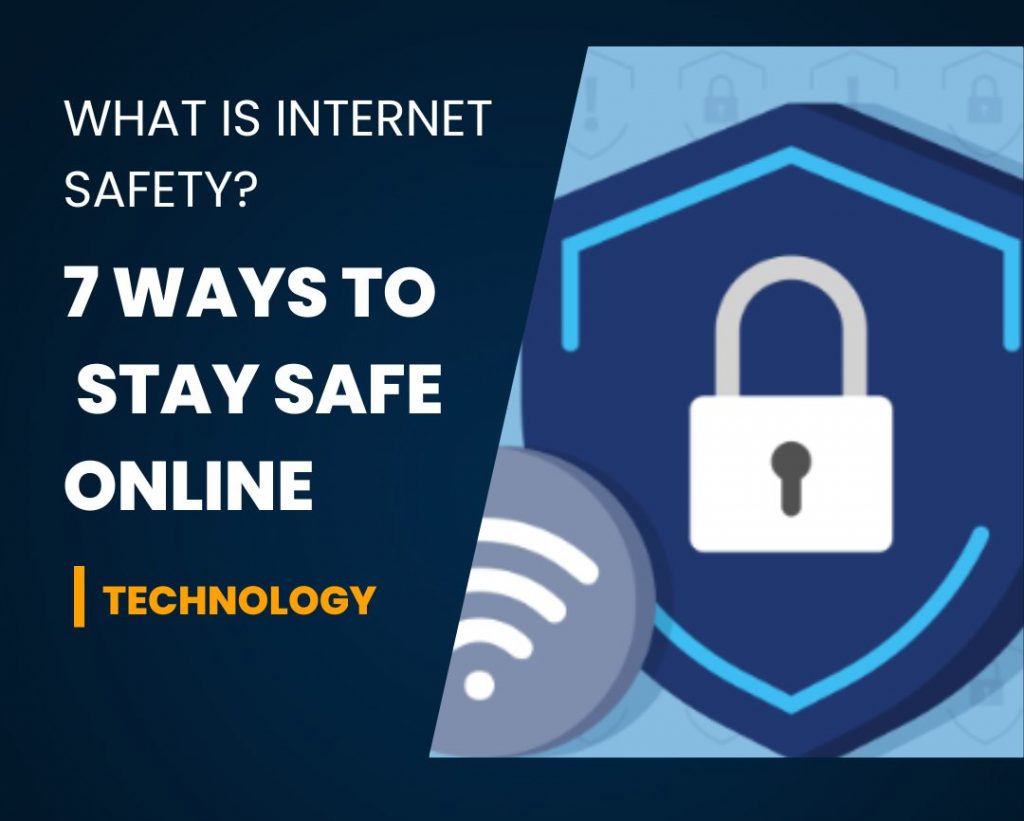Internet security is really important in today’s world. Everyone must protect their personal information online. If you’re not careful, you could lose important data. That’s why we’re going to talk about online safety in this blog post. We’ll give you 7 tips to help you stay safe online, along with other useful information.
What Is Internet Safety?
Internet safety is all about protecting yourself and your information when you’re online. This means keeping your details, like your name, address, and bank information, safe from things like viruses, hackers, scams, and data leaks. It’s important to be careful and smart when using the internet to avoid getting tricked or having your information stolen. Learning about the risks and how to stay safe online is key to protecting yourself. It’s also important to keep your devices secure and only let trusted people use them. By taking these steps, you can help prevent your personal information from being stolen or misused on the internet.
Why Internet Safety or Security Is Important?
Internet security is crucial for protecting sensitive information, personal data, and property. This is especially important when doing online banking and shopping. As we rely more on the internet for everyday tasks, we are at risk of cyber and computer crimes. Users of all sizes are vulnerable to fraud on the internet. Tasks like bill payment, shopping, payment services, and Internet banking may seem legitimate to users but can be used to deceive them.
As we use the internet more, hackers are trying to steal our private information. Internet security is becoming more important globally. To stay safe online and keep our details safe, we should follow a strict privacy policy. It’s crucial to protect ourselves from cybercrime and fraud, as even a small security breach can lead to significant losses.
The best way to protect your computer devices from online security threats like viruses, malware, and spyware is by using the Best Free Antivirus Software.
Internet Safety Tips – 7 Best Ways To Stay Safe Online
To keep yourself safe online and protect your computer from viruses and other security threats, follow these 7 important safety tips.
7 Tips To Stay Safe Online

1. Use Latest Antivirus and Firewall:
It’s really important to regularly update your antivirus and firewall software. By keeping these programs up-to-date, you can protect your computer from new online threats.
Many programs have an automatic update feature, making it easy for you to receive the latest updates. You can also visit the software manufacturer’s website to manually check for updates if needed. This way, you can ensure your computer is safe and secure from any potential risks.
2. Update your web browser
It’s really important to keep your web browser updated to stay safe online. Web browsers get updated regularly with new security features that protect your computer from cyber threats. Old browsers are more vulnerable to hackers because they lack the latest security patches. New versions also have built-in antivirus and anti-phishing tools.
To stay secure, always download the latest browser version and check for updates often. Use a trusted browser with privacy and security features to keep your data safe. Upgrading your browser only takes a few seconds and is worth it to protect yourself online.
3. Use a stronger and Unique password
Create a password that is strong and easy to remember by using a mix of letters and numbers. Hackers can easily guess simple passwords, so make sure to use a unique one for each account. Choose a phrase or combination of characters that you can easily recall. Avoid sharing your password with anyone and update it regularly for added security.
4. Never Save Your Login Information
It’s risky to let your browser save your login details. It’s safer to type in your info each time you log in, even if it’s a bit slower. To protect yourself online, avoid saving passwords in your browser. If someone else gets into your computer, they can access your accounts and personal info easily. Instead, use unique passwords for each account and never save them. Don’t share your passwords with others. Try to use two-factor authentication for added security.
5. Never throw a paper document with sensitive data
Keep your personal paper documents organized and safe: Fraudsters can use the information on paper documents to steal someone’s identity. Make sure to destroy paper documents before throwing them away.
6. Do not open any spam email or junk file
It’s important to be able to tell the difference between real and fake emails and websites. Don’t open any suspicious emails or click on links to unknown websites. If you do, you could become a victim of phishing, where criminals try to trick you into giving them personal information. Stay safe online by being careful about what you click on and never sharing personal information with unknown sources.
7. Be alert for Internet scams
Internet scams are on the rise, so it’s crucial to stay vigilant and cautious when browsing online. Be careful of emails or messages asking for personal or financial details, and always verify the legitimacy of any links before clicking on them. Avoid sharing sensitive information on unfamiliar or untrustworthy websites. By staying alert and taking necessary measures, you can safeguard yourself against internet scams.
Conclusion:
This article taught us about staying safe on the internet, also known as online safety and internet security. We talked about 7 ways to stay safe online. Follow these tips to protect yourself while using the internet.

